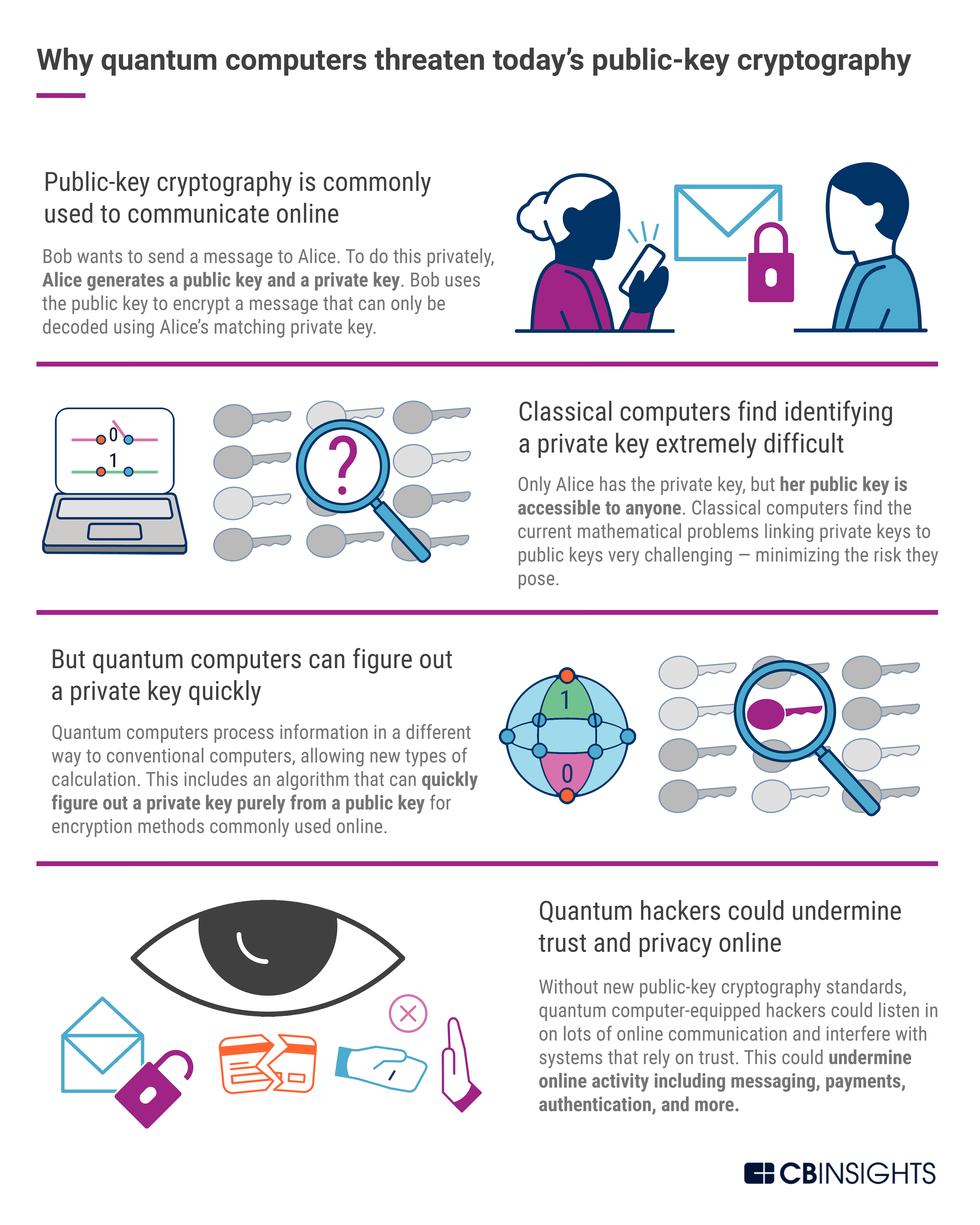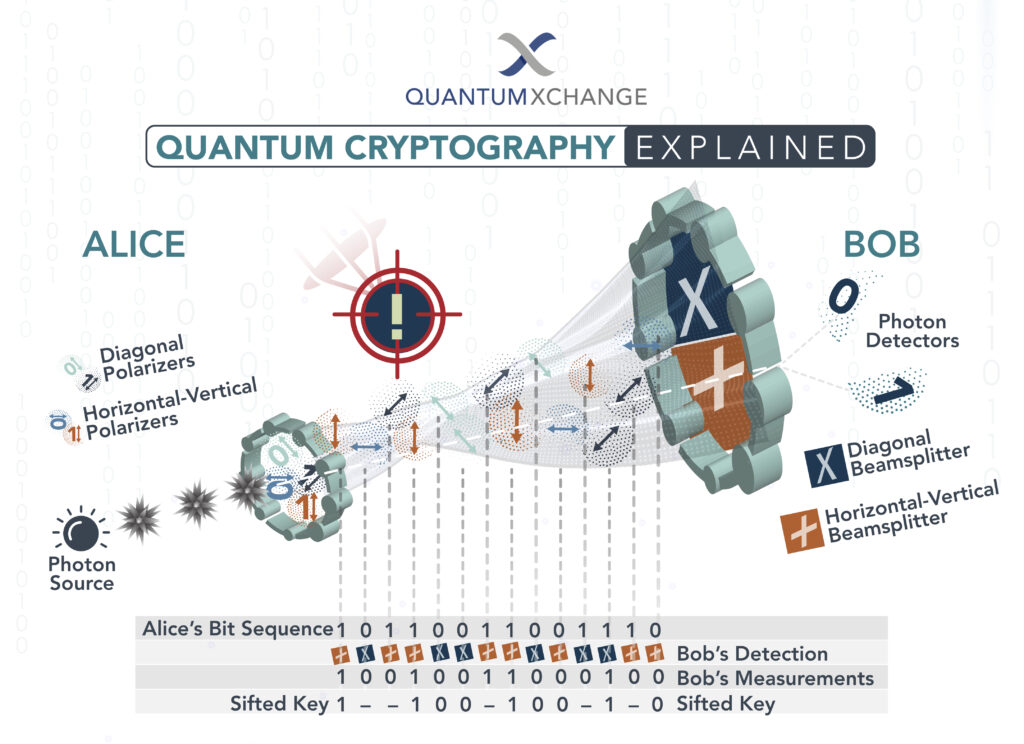In the world of cybersecurity, encryption is a vital tool used to protect sensitive information from prying eyes. Public key cryptography has been the go-to method for encryption for decades, but as quantum computing technology advances, it may no longer be sufficient to keep data secure. Enter quantum cryptography, a new form of encryption that utilizes the peculiar properties of quantum mechanics to create unbreakable codes.
The question on everyone’s mind is whether quantum cryptography can replace public key cryptography altogether. While there is no clear answer yet, the potential of quantum cryptography is undeniable. In this article, we will explore the differences between public key and quantum cryptography, the advantages and limitations of each, and the future implications of using quantum cryptography for data security.
Quantum cryptography can potentially replace public key cryptography, but it is not yet ready for widespread adoption. Quantum cryptography relies on special properties of quantum mechanics to guarantee secure communication. It is more secure than public key cryptography, but is more expensive and requires specialized hardware. It is also not yet supported by most commercial applications. As quantum computing advances and its costs come down, it may eventually replace public key cryptography as the standard for secure communication.

Can Quantum Cryptography Replace Public Key Cryptography?
Quantum cryptography is a rapidly advancing technology that could one day replace public key cryptography in the transmission of secure data. This article will explore the advantages and disadvantages of quantum cryptography, and how it could potentially replace public key cryptography.
What is Quantum Cryptography?
Quantum cryptography is a type of cryptography that uses quantum mechanics to secure communication. Unlike traditional cryptography, which relies on mathematical algorithms, quantum cryptography relies on the laws of physics to protect data. This means that any attempt to eavesdrop on the communication will be detected and the data will be securely transmitted.
Quantum cryptography makes use of the Heisenberg Uncertainty Principle, which states that the position and momentum of a particle cannot be determined simultaneously. This property can be used to create a secure communication channel that cannot be intercepted by third parties. By encoding data into the state of a particle, it can be transmitted securely.
Advantages of Quantum Cryptography
One of the main advantages of quantum cryptography is its security. By relying on the laws of physics, it is impossible for third parties to eavesdrop on the communication. This makes quantum cryptography more secure than traditional cryptography.
Another advantage of quantum cryptography is its scalability. Unlike traditional cryptography, which can be difficult to scale, quantum cryptography can be easily scaled to meet the needs of a variety of applications. This makes it much more cost-effective than traditional cryptography.
Disadvantages of Quantum Cryptography
Although quantum cryptography is more secure than traditional cryptography, it is still not perfect. One of the main disadvantages of quantum cryptography is its cost. As the technology is still relatively new, it is significantly more expensive than traditional cryptography.
Another disadvantage of quantum cryptography is its complexity. As the technology is still relatively new, it can be difficult to understand and implement. This means that it may not be suitable for all applications.
Can Quantum Cryptography Replace Public Key Cryptography?
Quantum cryptography has the potential to replace public key cryptography in the transmission of secure data. It is more secure than traditional cryptography, and has the potential to be more cost-effective and scalable. However, the technology is still relatively new, and it may not be suitable for all applications.
At present, quantum cryptography is still too expensive and too complex for widespread use. Until the technology becomes more accessible, it is unlikely to replace public key cryptography. However, it is an area that is rapidly advancing, and it may one day become the preferred method for secure data transmission.
Frequently Asked Questions
Quantum cryptography is a method of protecting data by using quantum mechanics, which is the study of the behavior of matter and energy at the microscopic level. Quantum cryptography can provide a secure way to encrypt and decrypt data, as well as a way to authenticate users and devices.
Can Quantum Cryptography Replace Public Key Cryptography?
Yes, quantum cryptography can replace public key cryptography in many applications. Quantum cryptography is much more difficult to break, as it relies on the principles of quantum mechanics to generate and exchange secret keys. This makes it virtually impossible for a third party to intercept and decrypt the data, as the secret keys are constantly changing. Quantum cryptography is also more secure than public key cryptography, as it does not rely on any mathematical algorithms that can be broken by attackers. Furthermore, quantum cryptography can be used to authenticate users and devices, providing an additional layer of security.
However, quantum cryptography is not a perfect replacement for public key cryptography. Public key cryptography is still the most widely used encryption system and is used in many applications and protocols. Furthermore, quantum cryptography is still in the early stages of development and is not yet widely available. There are also significant costs associated with implementing quantum cryptography, which may limit its use in some applications.

In conclusion, the question of whether quantum cryptography can replace public key cryptography is a complex one that requires careful consideration of the strengths and weaknesses of each approach. While quantum cryptography offers unparalleled levels of security through the use of quantum key distribution protocols, it is not without its own limitations, such as the need for specialized equipment and the challenge of scaling up to large networks. On the other hand, public key cryptography has proven to be a reliable and widely used method for secure communication, despite the potential vulnerabilities associated with its dependence on mathematical algorithms.
Ultimately, it is likely that a combination of both quantum cryptography and public key cryptography will be used in the future to provide enhanced levels of security for communication networks. As quantum computing continues to advance and become more accessible, it is important for researchers and industry professionals to work together to develop new protocols and algorithms that can meet the evolving demands of the digital age. By staying ahead of the curve and embracing new technologies, we can ensure that our communication systems remain secure and resilient in the face of emerging threats.


Nice Post on Artificial Intelligence.